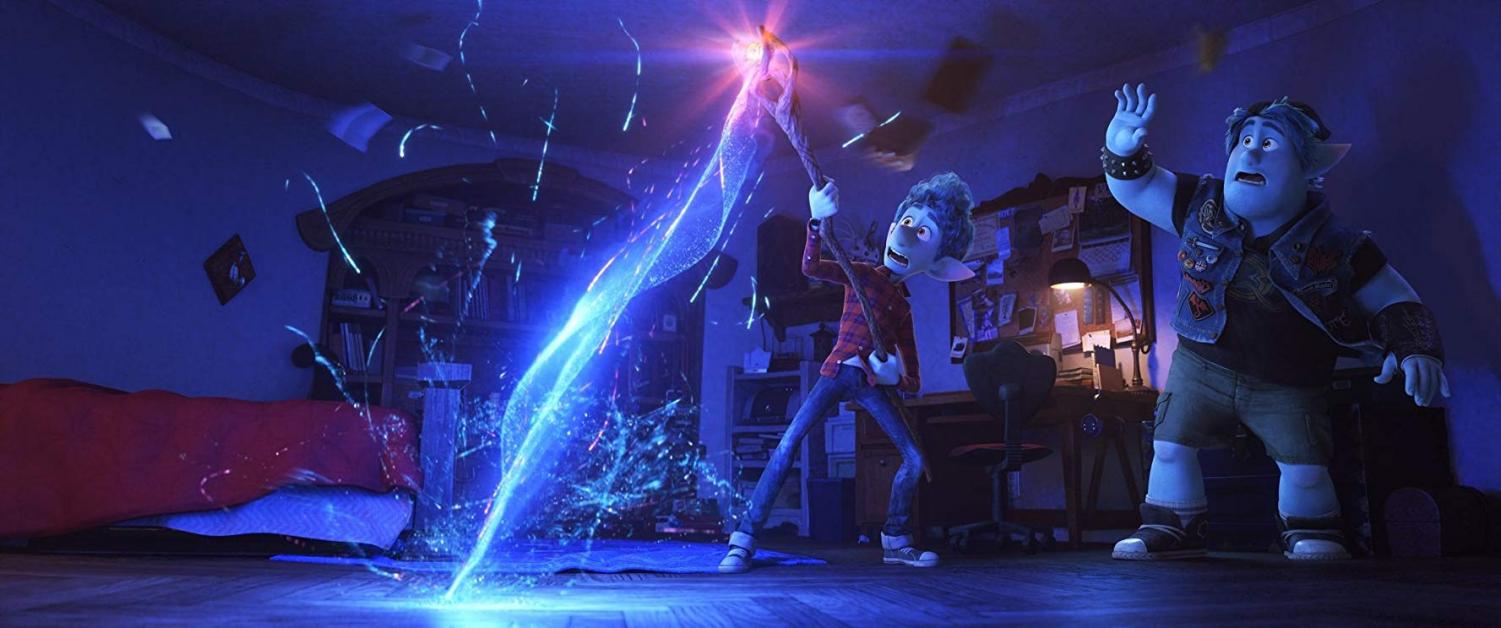Many Pixar fans have held high expectations for the studio since recent hits such as “Toy Story 4” and “Incredibles 2.” However, Pixar’s latest film “Onward” does not live up to the hype. A conventional fantasy story, the film lacks depth and fails to resonate with audiences. Though director Dan Scanlon presents an imaginative world and a few heartwarming moments, the story may leave audiences unsatisfied.
FORMULA FILM
“Onward” takes place in a certainly creative world, where elves Ian and Barley Lightfoot live among various magical creatures, such as unicorns, fairies and dragons. However, advancing technologies like electricity and vehicles remove the need for magic from the world. When Ian receives a gift on his 16th birthday that sends him on a dangerous quest, he discovers he possesses the powers of a wizard.
Despite its imaginative approach for the film’s setting and an exciting introduction, “Onward” falls flat in the second act. Filmgoers often view Pixar’s films as the standard of good storytelling, but the majority of this fantasy tale was extremely formulaic. Ian and Barley simply travelled from one point to another, with obstacles that did nothing to contribute to their overall character development. In addition, the subplot about the “curse”—as advertised in trailers—seems like it was thrown in last-minute with no real purpose other than providing an action sequence. Previous Pixar films “Inside Out” and “Up” set the standard for stories that truly resonate with audiences, and “Onward” does not live up to those expectations.
A portion of its formulaic inclination comes from the characters’ interactions throughout the film, which feel very forced and unnatural. Ian, portrayed by Tom Holland, and Barley, portrayed by Chris Pratt, excel individually, but the audience does not receive enough background until the end to fully understand their relationship. As a result, their conversations often come across as very scripted.
MOVING MOMENTS
What “Onward” lacks in story it makes up for in heart. The third act reveals the touching theme of brotherly love, as Ian sacrifices his greatest desire to give Barley a chance to have his. Throughout the film, Pixar portrays Barley as the “screw-up” character who still lives at his mother’s house without a job, to Ian’s frustration. In the end, Ian realizes that Barley has taken care of him since day one. The father figure he had been searching for his whole life was standing right there in front of him.
This sentiment is heartwarming but does not distract from the cheap way the revelation was portrayed, as Pixar failed in character development leading up to its grand finale. Rather than using the experiences throughout their journey to demonstrate Barley’s role in Ian’s life, the writers used a quick flashback sequence instead. Because audiences only catch a glimpse of the pair as children playing, they leave the film with little understanding about the nature of the characters’ relationship.
Despite inadequate execution, the climax of the film still has the power to move audiences to tears and touch their hearts. Though it may be formulaic and uninnovative, “Onward” remains a fun story in a creative world.








